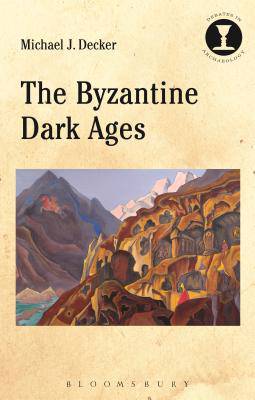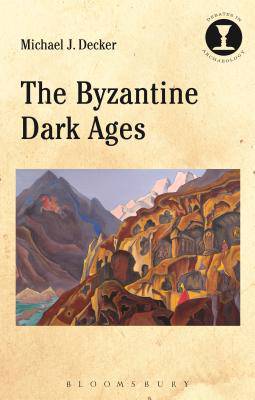
Je cadeautjes zeker op tijd in huis hebben voor de feestdagen? Kom langs in onze winkels en vind het perfecte geschenk!
- Afhalen na 1 uur in een winkel met voorraad
- Gratis thuislevering in België vanaf € 30
- Ruim aanbod met 7 miljoen producten
Je cadeautjes zeker op tijd in huis hebben voor de feestdagen? Kom langs in onze winkels en vind het perfecte geschenk!
- Afhalen na 1 uur in een winkel met voorraad
- Gratis thuislevering in België vanaf € 30
- Ruim aanbod met 7 miljoen producten
Zoeken
€ 62,95
+ 125 punten
Uitvoering
Omschrijving
The Byzantine Dark Ages explores current debates about the sudden transformation of the Byzantine Empire in the wake of environmental, social and political changes. Those studying the Byzantine Empire, the successor to the Roman Empire in the eastern Mediterranean, have long recognized that the mid-7th century CE ushered in sweeping variations in the way of life of many inhabitants of the Mediterranean world, with evidence of the decline of the size and economic prosperity of cities, a sharp fall in expressions of literary culture, the collapse in trade networks, and economic and political instability.
Michael J. Decker looks at the material evidence for the 7th to 9th centuries, lays out the current academic discourse about its interpretation, and suggests new ways of thinking about this crucial era. Important to readers interested in understanding how and why complex societies and imperial systems undergo and adapt to stresses, this clearly written, accessible work will also challenge students of archaeology and history to think in new ways when comprehending the construction of the past.Specificaties
Betrokkenen
- Auteur(s):
- Uitgeverij:
Inhoud
- Aantal bladzijden:
- 256
- Taal:
- Engels
- Reeks:
Eigenschappen
- Productcode (EAN):
- 9781472536037
- Verschijningsdatum:
- 25/02/2016
- Uitvoering:
- Paperback
- Formaat:
- Trade paperback (VS)
- Afmetingen:
- 137 mm x 216 mm
- Gewicht:
- 317 g

Alleen bij Standaard Boekhandel
+ 125 punten op je klantenkaart van Standaard Boekhandel
Beoordelingen
We publiceren alleen reviews die voldoen aan de voorwaarden voor reviews. Bekijk onze voorwaarden voor reviews.









